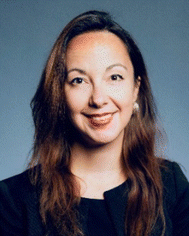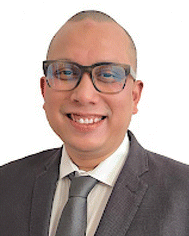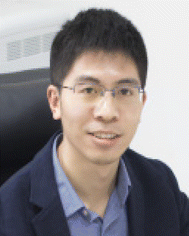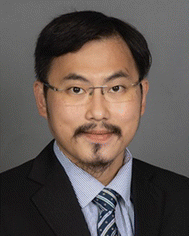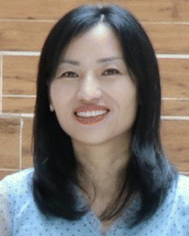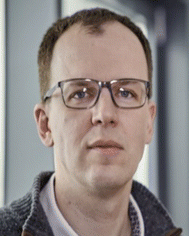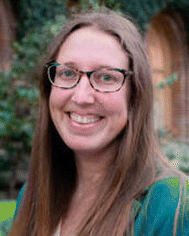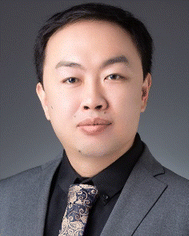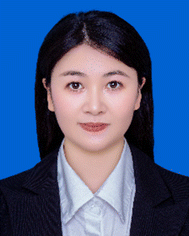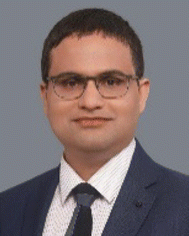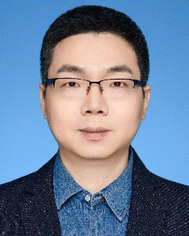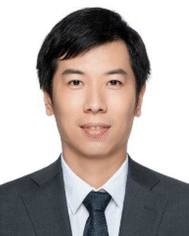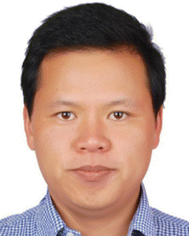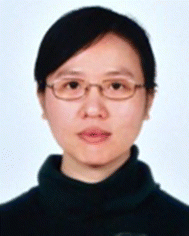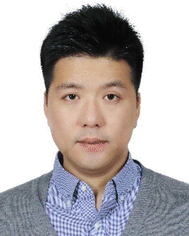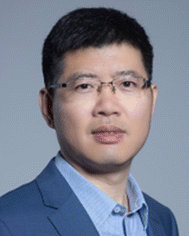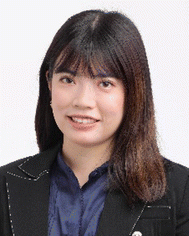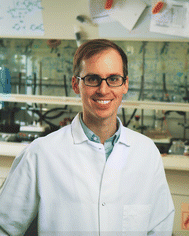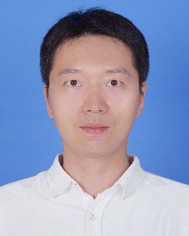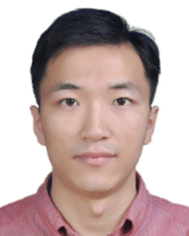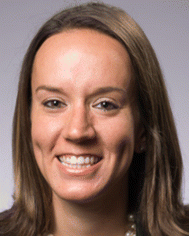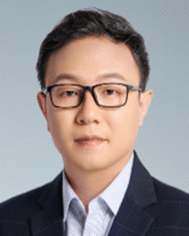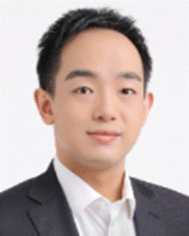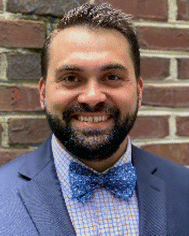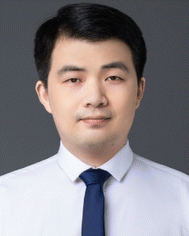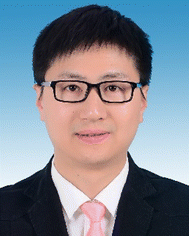DOI:
10.1039/D4QI90021A
(Profile)
Inorg. Chem. Front., 2024,
11, 2521-2526
Contributors to the Inorganic Chemistry Frontiers Emerging Investigator Series 2022–2023
Abstract
In the summer of 2022, Inorganic Chemistry Frontiers was pleased to launch an ongoing Emerging Investigators themed issue to highlight the best research being conducted by scientists in the early stages of their independent careers. Each contributor was recommended as carrying out work with the potential to influence future directions in inorganic chemistry. Congratulations to all the researchers featured, we hope you enjoy reading their work.
Selvan Demir is an Assistant Professor of Chemistry at Michigan State University. She received her PhD in Chemistry from the University of Cologne in 2010 researching on scandium solid state chemistry with Prof. Gerd Meyer and scandium organometallic chemistry with Prof. William J. Evans at the University of California, Irvine. Subsequently, she conducted postdoctoral studies on single-molecule magnets and porous aromatic frameworks with Prof. Jeffrey R. Long at the University of California, Berkeley. Simultaneously, she explored the transuranics with Dr David K. Shuh at the Lawrence Berkeley National Laboratory. Afterwards, she took up a junior professorship of inorganic chemistry at the University of Göttingen. Since 2019 at Michigan State University, she focuses with her group on the organometallic chemistry of the rare earth elements and actinides. Her research program has a strong emphasis on catalysis, small molecule activation, single-molecule magnetism, and quantum information science.
EMI article: https://doi.org/10.1039/D3QI00546A
Fatwa F. Abdi is an Associate Professor in the School of Energy and Environment, City University of Hong Kong (CityU HK). He obtained his PhD (
cum laude) in Chemical Engineering from TU Delft, the Netherlands, in 2013, and he was the recipient of the Martinus van Marum prize from the Royal Dutch Society of Sciences and Humanities. Prior to joining CityU HK, he was a group leader and the deputy head of the Institute for Solar Fuels, Helmholtz-Zentrum Berlin, Germany. His research group focuses on the development of materials and engineering of devices for solar-to-chemical conversion applications.
EMI article: https://doi.org/10.1039/D3QI01841E
Congqing Zhu received his PhD degree from Xiamen University in 2014, under the supervision of Prof. Haiping Xia. After completing his iChEM fellowship research in China, he continued his work as a postdoctoral associate in Prof. Richard Schrock's group at MIT. He began his independent career at Nanjing University in 2016, where he leads a research group focusing on actinide organometallic chemistry. He has received the Huang Yao-Zeng Organometallic Chemistry Award for Young Chemists (2021) and the Jingqing Rising Star Award in Chemistry from the Chinese Chemical Society (2021). His research group focuses on organometallic chemistry (with a special focus on uranium and thorium) and small molecule activation.
EMI article: https://doi.org/10.1039/D3QI01447A
Bolong Huang received his PhD in 2012 from the University of Cambridge, and his BSc in condensed matter physics from the Department of Physics, Peking University in 2007. Following a systematic training period of post-doctoral studies in the Chemistry Department at Peking University, and in Hong Kong, he started independent research at the Hong Kong Polytechnic University in 2015 and became a tenured Associate Professor in July 2022. His current research is focusing on theoretical calculations of electronic structures on nanomaterials, energy materials, solid functional materials, and rare earth materials, as well as their applications in multi-scale energy conversion and supply systems.
EMI article: https://doi.org/10.1039/D3QI00799E
Guangqin Li received her PhD degree from Kyoto University (Japan) under the guidance of Prof. Hiroshi Kitagawa. Then she was awarded the JSPS IKUSHI prize and worked as a JSPS Research Fellow at Kyoto University. Currently, she is a full professor at the School of Chemistry at Sun Yat-sen University, China (SYSU). Her research interests focus on porous metal–organic frameworks or coordination polymer-based nanomaterials and their catalytic performance, particularly in the context of hydrogen-related applications like hydrogen production, storage, and hydrogen utilization such as NO
x reduction into amino acid and other organic nitrogen-containing molecules through electrocatalysis.
EMI article: https://doi.org/10.1039/D3QI01468A
Torsten Beweries studied chemistry at the University of Rostock and carried out diploma and PhD studies at the Leibniz Institute for Catalysis (advised by Prof. U. Rosenthal). After postdoctoral research with Prof. R. N. Perutz (University of York, UK) in 2009, he returned to LIKAT, where he established his own research group. After completing his habilitation in 2016, he became head of the research department “Coordination Chemistry and Catalysis” at LIKAT. His research is focused on stoichiometric, catalytic, and mechanistic aspects of small molecule activation using organometallic systems based on group 4 and 9 metals.
EMI article: https://doi.org/10.1039/D3QI00142C
Megan E. Fieser is a Gabilan Assistant Professor of Chemistry at the University of Southern California (USC). She received her PhD in Chemistry from the University of California, Irvine, under the supervision of William J. Evans. She then conducted postdoctoral studies in the lab of William B. Tolman at the University of Minnesota, as part of the NSF Center for Sustainable Polymers. At USC, her research group is interested in synthesizing molecular inorganic catalysts that can either be used to synthesize degradable polymers or recycle/upcycle commercial polymers.
EMI article: https://doi.org/10.1039/D3QI01833D
Di Sun received his BS (2005) from Liaocheng University, and his MS (2008) and his PhD (2011) from Xiamen University under the guidance of Professors Su-Yuan Xie, Rong-Bin Huang and Lan-Sun Zheng, respectively. In 2011, he was appointed as a Lecturer at Shandong University, and in 2014 and 2017 he was promoted to Associate Professor and Professor, respectively. His research interests include coordination chemistry, cluster chemistry and nanomaterials.
EMI article: https://doi.org/10.1039/D3QI00018D
Wei-Hui Fang received her PhD degree in chemistry in 2013 from the Fujian Institute of Research on the Structure of Matter, Chinese Academy of Sciences (FJIRSM-CAS), under the supervision of Prof. Guo-Yu Yang. She was a visiting scholar at the University of Cambridge during 2016–2017. Now she is a Professor in FJIRSM-CAS. Her current research interests are the rational design of aluminum oxo clusters and the investigation of unique functions at the molecular level.
EMI article: https://doi.org/10.1039/D3QI02008H
Abhishek Dutta Chowdhury obtained his PhD from the Indian Institute of Technology (IIT) Bombay, India (with Prof. G. K. Lahiri). Subsequently, he did three postdocs before coming to China: Leibniz Institute of Catalysis-Rostock (Germany) with Prof. Matthias Beller; Utrecht University (Netherlands) with Prof. Bert M. Weckhuysen; and King Abdullah University of Science and Technology (KAUST, Saudi Arabia) with Prof. Jorge Gascon. He started his career at the College of Chemistry and Molecular Sciences at Wuhan University, China in 2019. Abhishek's research team has been dedicated to sustainable heterogeneous catalysis, with a primary focus on the valorization of renewable C1 feedstocks, particularly methanol and carbon dioxide.
EMI article: https://doi.org/10.1039/D3QI01526B
Jiang Zhou received his bachelor's degree (2011) and PhD (2015) from Central South University (CSU). From 2014 to 2015, he joined Prof. Hua Zhang's group at Nanyang Technological University (NTU) as an exchange PhD student. After graduation, he carried out his postdoctoral research in Prof. Ju Li's group at the Massachusetts Institute of Technology (MIT) in 2016. He joined CSU as a professor at the end of 2017. His research interests include aqueous zinc-ion batteries, lithium (sodium)-ion batteries,
etc.
EMI article: https://doi.org/10.1039/D3QI01117H
Honghan Fei received his BS in chemistry from Fudan University in 2007. He then attended graduate school at the University of California, Santa Cruz, and earned his PhD under the guidance of Prof. Scott R. J. Oliver. After postdoctoral work with Prof. Seth M. Cohen at the University of California, San Diego, he joined the chemistry faculty at Tongji University in 2015. Since 2020, he has been a tenured professor in the School of Chemical Science and Engineering. His research interests are primarily in the area of lead halide-based coordination polymers.
EMI article: https://doi.org/10.1039/D3QI00678F
Justin J. Wilson obtained his BS in chemistry from U.C. Berkeley in 2008 and his PhD in inorganic chemistry in 2013 from the Massachusetts Institute of Technology working in the lab of Professor Stephen J. Lippard. Following a position as a Seaborg Institute Postdoctoral Fellow at Los Alamos National Laboratory, he began his independent career as a faculty member in the Department of Chemistry and Chemical Biology at Cornell University in 2015. In summer 2024, his research group moved to the University of California Santa Barbara, where he is a professor in the Department of Chemistry and Biochemistry. The Wilson group is engaged in research focusing on bioinorganic, f-element, and radiopharmaceutical chemistry.
EMI article: https://doi.org/10.1039/D2QI02183H
Hongwei Yu received his B.Eng. at Jilin University in 2009, and his PhD at the Xinjiang Technical Institute of Physics & Chemistry, CAS in 2014. He then pursued postdoctoral research at the University of Houston and Northwestern University (USA) from 2014 to 2017. He is now a full Professor at Tianjin University of Technology, China, engaged in research on nonlinear optical crystals.
EMI article: https://doi.org/10.1039/D2QI01263D
Liming Zhang is a Professor in the Department of Chemistry at Fudan University. She received her BS in Chemistry from Shandong University (2007), and her PhD in Chemistry and Molecular Engineering from Peking University (2012). During postdoctoral research, she worked at UC Berkeley (2012–2014) and at Stanford (2014–2017). She joined Fudan in 2017 as a principal investigator, and her lab is devoted to fundamental research on (photo)electrocatalysis at interfaces, with an emphasis on the development of model catalysts and
operando techniques to understand the nature of (photo)electrocatalysis, including structural dynamics and charge transfer.
EMI article: https://doi.org/10.1039/D3QI00455D
Jian Lin is a professor at Xi'an Jiaotong University. He received his BSc and MSc from China Agriculture University in 2006 and 2009, respectively. He obtained his PhD degree at the University of Notre Dame (USA) in 2014. Then he moved to Argonne National Laboratory and worked as a post-doctoral fellow (2014–2016). His research interests mainly focus on developing new synthetic strategies to access crystalline materials, including metal–organic frameworks and clusters, for potential applications in ionizing radiation detection, radionuclide separation, and chemosensing.
EMI article: https://doi.org/10.1039/D2QI02631G
Lele Duan is a tenured Associate Professor in the Center of Artificial Photosynthesis for Solar Fuels and the Department of Chemistry at Westlake University. He completed his BS and MS degrees at Dalian University of Technology, PhD at KTH Royal Institute of Technology, and postdoctoral training at KTH and Brookhaven National Laboratory. He was a tenured Associate Professor in the Department of Chemistry at Southern University of Science and Technology before moving to Westlake University. His research interests revolve around the surface coordination chemistry of carbon materials toward electrochemical activation and conversion of small molecules.
EMI article: https://doi.org/10.1039/D2QI02671F
Lingling Mao is an Associate Professor at Southern University of Science and Technology. She earned her PhD in inorganic chemistry from Northwestern University with Prof. Mercouri Kanatzidis in 2018. She was a post-doctoral fellow in the Materials Research Lab at UC Santa Barbara, working with Prof. Ram Seshadri and Prof. Sir Anthony Cheetham. Her research interests focus on synthesis and characterization of hybrid organic–inorganic materials, their structure–property relations, and their applications for optoelectronic devices.
EMI article: https://doi.org/10.1039/D2QI01247B
Timothy R. Cook began his independent research career at the University at Buffalo in 2014. Prior to that, he worked with Prof. Daniel Nocera at MIT from 2005 to 2010 (PhD) and Prof. Peter Stang at Utah from 2010 to 2014 (postdoc). The Cook group is interested in coordination-driven self-assembly reactions and in particular the formation and study of functional materials obtained from this synthetic methodology. Assemblies from the Cook group have been used as catalysts, light harvesters, redox-active centers for energy storage, and hosts for supramolecular chemistry.
EMI article: https://doi.org/10.1039/D2QI02050E
Guo-Hong Ning is currently a Professor in the College of Chemistry and Materials Science at Jinan University. He obtained his PhD degree in 2013 from The University of Tokyo under the supervision of Prof. Makoto Fujita. During 2013–2015, he held a JSPS postdoctoral fellowship at The University of Tokyo, working with Prof. Makoto Fujita. Prior to joining Jinan University, he worked as a postdoctoral associate with Prof. Loh Kian Ping at the National University of Singapore (2015–2017) and with Prof. Andrew I. Cooper (FRS) at The University of Liverpool (2017–2018). His primary research interests focus on the development of cyclic trinuclear units (CTUs)-based covalent metal organic frameworks (CMOFs), and exploration of their applications.
EMI article: https://doi.org/10.1039/D2QI01427K
Xitao Liu received his BS in the College of Materials and Metallurgy at Guizhou University in 2009 and then PhD degree at Shandong University in 2014. After graduation, he joined the Fujian Institute of Research on the Structure of Matter, CAS as an Assistant Professor and was promoted to Professor in 2022. His research interest focuses on hybrid perovskite ferroelectric materials.
EMI article: https://doi.org/10.1039/D2QI02149H
Ellen M. Matson received her PhD from Purdue University. Following a postdoctoral appointment at the University of Illinois at Urbana-Champaign, Matson began her independent career at the University of Rochester in 2015, where she is currently the Marshall D. Gates Jr. Associate Professor of Chemistry. The Matson Laboratory studies the synthesis and reactivity of reduced, organofunctionalized polyoxovanadate clusters and actinide complexes, targeting applications in emergent energy storage and conversion technologies.
EMI article: https://doi.org/10.1039/D3QI00129F
Zi-Shuo Yao received his PhD degree in 2015 from Kyushu University under the supervision of Professor Osamu Sato, and then he worked at the Institute for Materials Chemistry and Engineering (IMCE) of Kyushu University as a postdoc fellow. In 2016, he joined the School of Chemistry and Chemical Engineering at Beijing Institute of Technology, China. His research focuses on functional molecule-based single crystals with dynamic structures, including shape-transformable single crystals, magnetic switchable materials, and ferroelectric materials.
EMI article: https://doi.org/10.1039/D2QI02371G
Jun Gu received his BS degree in 2011 and PhD degree in 2016 from Peking University. At the end of 2016, he joined the Lab of Inorganic Synthesis and Catalysis at École Polytechnique Fédérale de Lausanne (EPFL, Switzerland) as a postdoc. At the beginning of 2021, he joined the Department of Chemistry at Southern University of Science and Technology. Now he is an associate professor and the principal investigator of the group of electrocatalysis. His research interests mainly focus on catalyst design and mechanism study for electrocatalytic activation of small molecules.
EMI article: https://doi.org/10.1039/D2QI02290G
Charles W. Machan is an Associate Professor in the Department of Chemistry at the University of Virginia, USA. He completed his BA with Majors in Chemistry and German (2008) at Washington University in St Louis and his PhD in Chemistry (2012) under the supervision of Prof. Chad A. Mirkin at Northwestern University. Charles was a postdoctoral researcher in the laboratory of Prof. Clifford P. Kubiak from 2013–2016, before beginning his independent career at the University of Virginia. His group is interested in energy-relevant catalysis, particularly at the interface of molecular electrochemistry and materials.
EMI article: https://doi.org/10.1039/D2QI01928K
Feng Yang received his BS in chemistry from Shandong University in 2011 and PhD in inorganic chemistry under Prof. Yan Li from Peking University in 2017. He subsequently worked as a postdoctoral fellow at Peking University until 2019. Then he joined the faculty of Southern University of Science and Technology as an Assistant Professor/PI and was promoted to Associate Professor in 2022. His research focuses on structure-controlled synthesis of carbon nanotubes, assembly chemistry in carbon nanotubes, and
in situ environmental TEM studies on the interface and dynamic evolution of nanomaterials at the atomic scale.
EMI article: https://doi.org/10.1039/D2QI02262A
Yuanbin Zhang received his BS at Nanjing University of Science and Technology in 2013 and PhD degree at Zhejiang University in 2018. He was a visiting student in the Department of Chemistry & Biochemistry at the University of California Los Angeles from 2017 to 2018. From 2018 to 2020, he worked as a postdoctoral fellow at Zhejiang University. After that, he started his independent career at Zhejiang Normal University as a double dragon scholar professor in 2020. His research interests mainly focus on the design of new porous materials for selective gas separation.
EMI article: https://doi.org/10.1039/D2QI00890D
|
| This journal is © the Partner Organisations 2024 |
Click here to see how this site uses Cookies. View our privacy policy here. 
